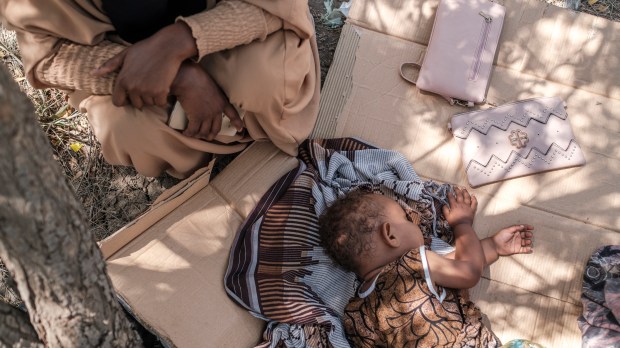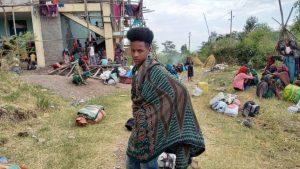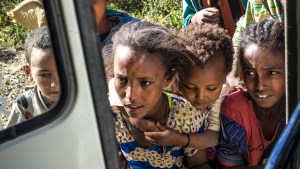Catholic aid agencies in Ethiopia are praying for a good outcome to peace talks now underway between the country’s federal government and Tigrayan rebel forces. Their humanitarian work – but more importantly, the lives of millions of people – depend on it.
The conflict that began almost two years ago, when Ethiopian Prime Minister Abiy Ahmed ordered an invasion of the northern Tigray region, has killed thousands of civilians and uprooted millions, according to Reuters.
Earlier this month, the New York Times gave an idea of how the conflict is affecting the local population:
Ethiopian drone strikes hit a kindergarten in August, killing several children, and a U.N. food truck in late September. An airstrike on Tuesday in Adi Da’ero, near the border with Eritrea, hit a center for refugees, killing at least 50 people, said two humanitarian officials in the area who spoke on the condition of anonymity for their safety.
The stakes for civilians in northern Ethiopia were outlined in a September 22 report by U.N. investigators that accused both sides of war crimes, including massacres and sexual assaults. But it singled out Mr. Abiy’s forces for “using starvation as a method of warfare” and for “sexual slavery” of Tigrayan women held in military camps.
At Tigray’s largest hospital, doctors say that patients are dying from cancer, kidney disease, and other treatable conditions for want of medicines. A recent study found that newborn babies in Tigray are dying at four times the prewar rate.
On October 17, UN Secretary-General Antonio Guterres said that, “the situation in Ethiopia is spiraling out of control. Violence and destruction have reached alarming levels. The social fabric is being ripped apart. (…) Civilians are paying a horrific price. Indiscriminate attacks — including in residential areas — are killing more innocent people every day, damaging critical infrastructure and limiting access to vital services. Hundreds of thousands of people have been forced to flee their homes since hostilities resumed in August, many of them for the second time. We are also hearing disturbing accounts of sexual violence and other acts of brutality against women, children and men.”
Agencies inhibited from helping
For Catholic Near East Welfare Association (CNEWA) and Catholic Relief Services (CRS), two humanitarian agencies based in the United States, it’s been frustrating not being able to get aid into the region. Except for a relatively brief period of ceasefire over the summer, lines of communication have been severed, and very little information is getting out of Tigray.
“Since resumption of the conflict on the 24th of August, I think all the humanitarian support has stopped because there’s no travel into the Tigray region,” said Argaw Fantu, CNEWA’s regional director in Ethiopia. “For almost 40 days now it has been interrupted.”
Recently, however, the federal government has allowed transport of humanitarian aid by road through a southern part of Tigray where there is no fighting, Fantu said.
“This past weekend there were … many trucks, including World Food Program trucks, passing through that area,” he said in an interview.
CRS has been able to deliver 310,232 metric tons of food to 7,165,799 program participants across Northern Ethiopia in the last year, the agency’s country representative, Zemede Zewdie, told Aleteia. But the conflict exacerbates humanitarian needs as access and delivery of aid becomes challenging, he said.
“The situation in Northern Ethiopia continues to create higher humanitarian needs such as water, sanitation and hygiene (WASH) services, shelter construction, distribution of non-food items, food assistance and the like,” Zewdie said. “Drought and conflict-induced displacement are exacerbating food insecurity and malnutrition in Northern Ethiopia, pushing people to migrate longer distances in search of water, pasture, and security. The disasters have severely affected both crop and livestock production. People affected by drought and conflict have experienced losses in crop production with missed crop cycles. Damage to infrastructure such as irrigation schemes and water catchment systems has resulted in a lack of income and loss of assets.”
Peace talks are expected to continue through the weekend.



